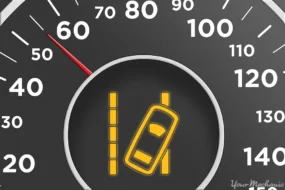Catalytic Converter Issues Explain symptoms and solutions a vital component of modern automotive systems, plays a crucial role in reducing harmful emissions. However, like any part of a vehicle, it is susceptible to issues that can impact both performance and environmental impact. In this article, we’ll delve into the symptoms of catalytic converter problems and explore viable solutions.
Understanding the Catalytic Converter:
Before delving into the issues, it’s essential to understand the catalytic converter’s function. Situated in the exhaust system, this device converts harmful gases produced during combustion into less harmful substances, primarily by catalyzing a variety of chemical reactions. This process helps vehicles comply with emission standards and minimizes their environmental footprint.
Check Engine Light Illumination:
One of the earliest signs of catalytic converter problems is the illumination of the check engine light on the dashboard. Modern vehicles are equipped with onboard diagnostics (OBD) systems that detect irregularities, including issues with the catalytic converter. A failing catalytic converter can lead to decreased engine performance and fuel efficiency. Drivers may notice sluggish acceleration, reduced power, and poor fuel economy. These symptoms can be particularly noticeable during acceleration or climbing hills.
Unusual Sounds:
An often overlooked symptom is unusual sounds emanating from the exhaust system. Rattling or hissing noises could indicate a damaged or clogged catalytic converter. It’s crucial to address these auditory warnings promptly to prevent further damage.
Excessive Emissions:
If your vehicle starts emitting an unusual amount of smoke or a rotten egg-like odor, it could be a sign of catalytic converter trouble. A properly functioning converter should efficiently convert gases, leaving behind clean exhaust emissions. Catalytic converters can overheat due to a malfunctioning oxygen sensor or excessive fuel entering the exhaust system. Overheating not only damages the converter but can also pose a fire hazard.
OBD-II Diagnostics:
When the check engine light illuminates, the first step is to use an OBD-II scanner to retrieve error codes. These codes can provide valuable insights into the specific issue affecting the catalytic converter. Professional diagnostic tools may be required for a more in-depth analysis.
Exhaust System Inspection:
Physically inspecting the exhaust system can reveal visible signs of damage or blockage in the catalytic converter. Rust, dents, or leaks may indicate the need for a replacement. However, internal issues may require more advanced diagnostic procedures. Faulty oxygen sensors can contribute to catalytic converter problems. Replacing these sensors can sometimes resolve issues and restore the converter’s efficiency. Regular maintenance, including sensor checks, can prevent premature converter failure.
Addressing Engine Misfires:
Engine misfires can lead to an influx of unburned fuel into the exhaust system, causing damage to the catalytic converter. Identifying and fixing the root cause of misfires, such as faulty spark plugs or ignition coils, is essential for preventing further converter damage.
Fuel System Cleaning:
Deposits and contaminants in the fuel system can affect the catalytic converter’s performance. Periodic fuel system cleaning can help prevent clogs and maintain optimal Catalytic Converter Issues function. In cases of severe damage or clogging, replacement may be the only viable solution. It’s essential to use a high-quality, compatible catalytic converter to ensure proper function and compliance with emission standards.
Conclusion:
In conclusion, Catalytic Converter Issues understanding the symptoms and solutions for is crucial for maintaining vehicle performance, fuel efficiency, and environmental responsibility. Regular maintenance, prompt diagnosis of warning signs, and addressing issues promptly can extend the life of the catalytic converter and contribute to a cleaner and more efficient driving experience. Remember, a well-maintained catalytic converter not only benefits your vehicle but also the environment we all share.











